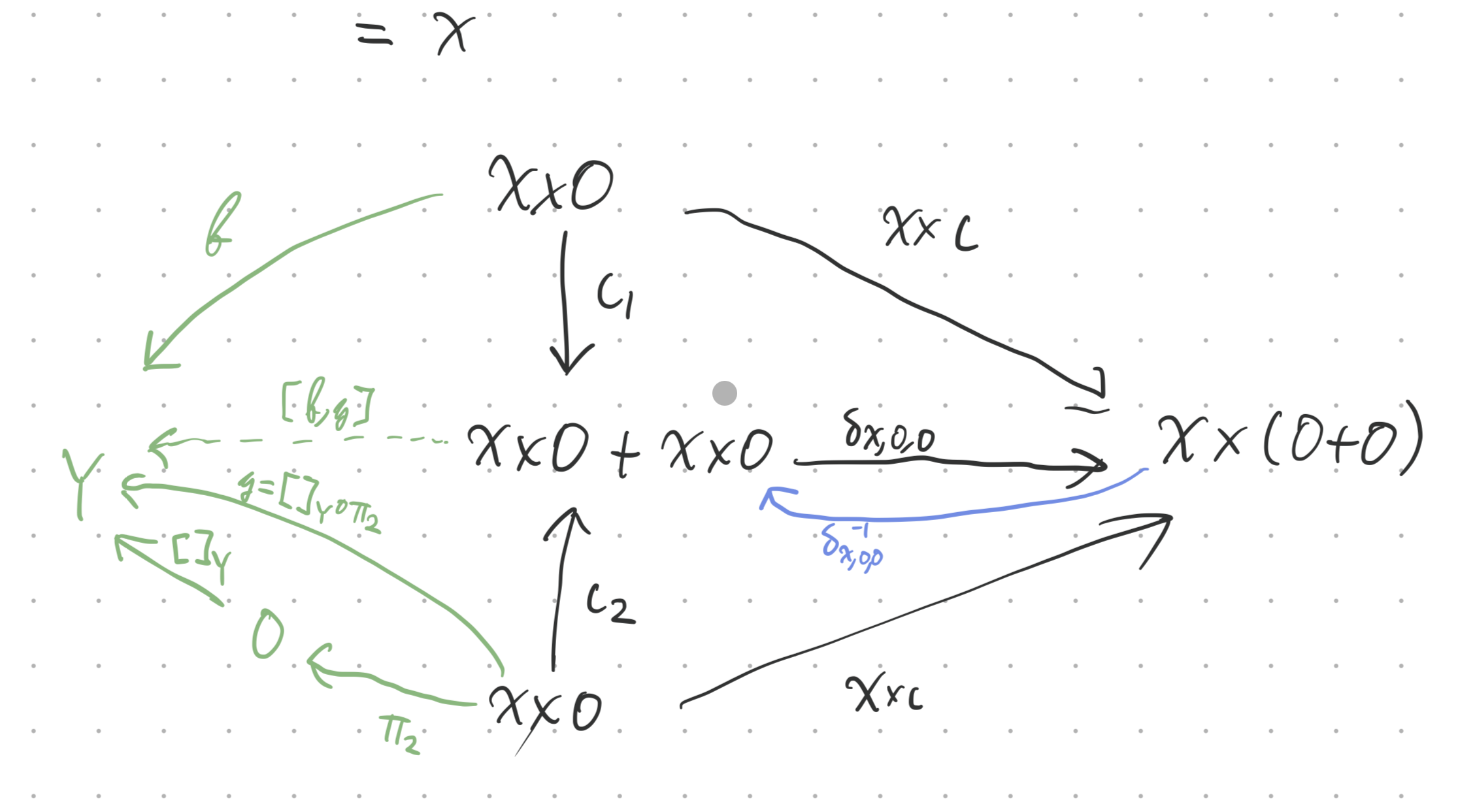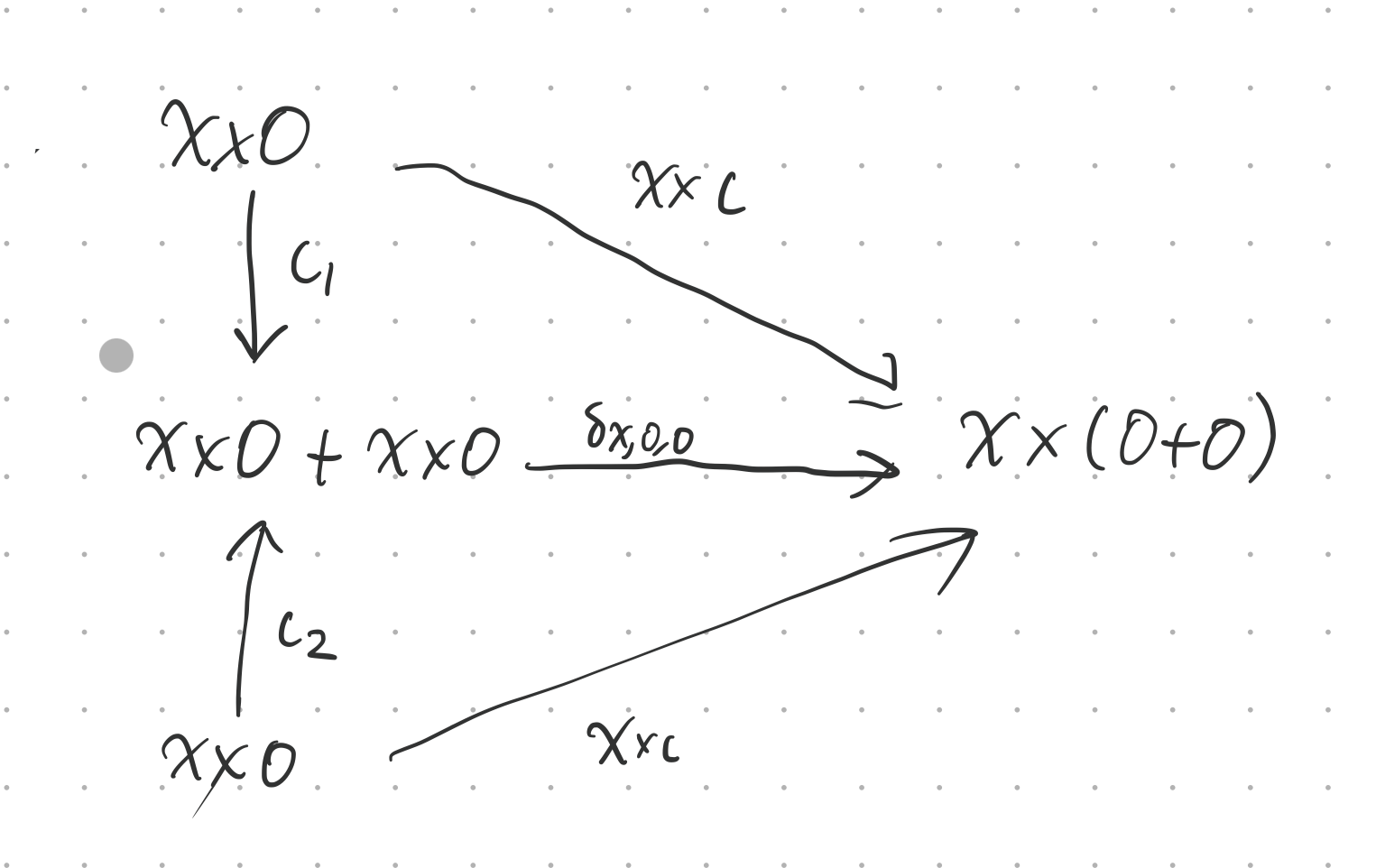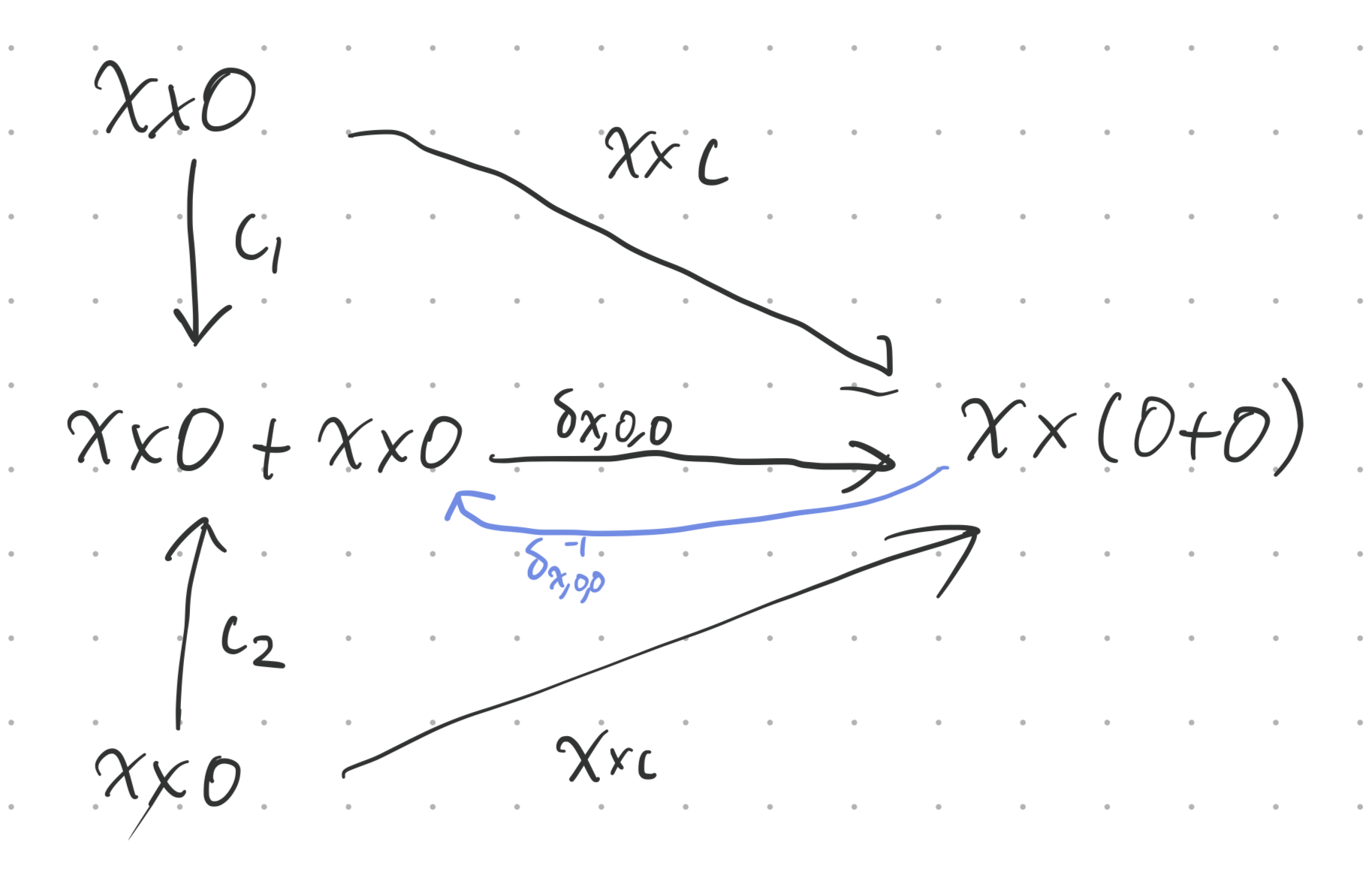coproducts
Distributive categories: A category is distributive if it has all binary products and binary coproducts, and for all , the unique morphism that makes
commute is an isomorphism.
- Using the usual product and coproduct constructs in , show that it is distributive.
- Give, with justification, an example of a category with binary products and coproducts that is not distributive.
- If is a distributive category and is an initial object in , prove that for all , the unique morphism is an isomorphism.
Start with the last one, which is the most interesting.
Since is an initial object, we have a unique morphism . We also have . Now take arbitrary object , and take two arrows . We know at least one, which we’ve shown in the diagram below . We’ll show that this is in fact unique, which lets us show that is an initial object in , and hence isomorphic to .

We know . If we can show , then we’ll have , and we’ll be done. So it suffices to show . Let’s zoom in:

The two injections are equal, since is initial (so arrows out of it are unique). is an isomorphism by distributivity.

Since is the unique injection, we have that , and symmetrically for , so , and so we’re done.